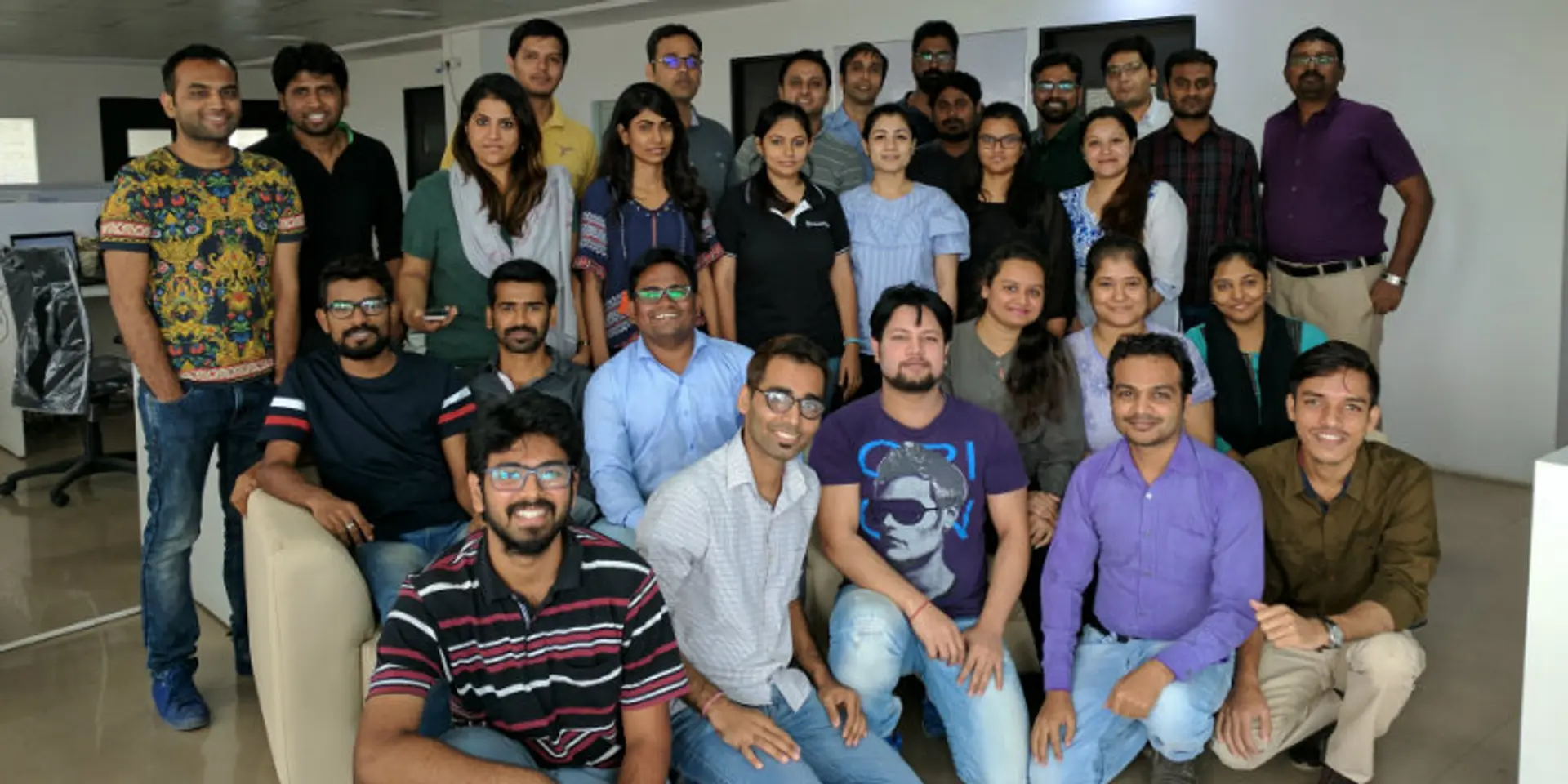Edtech startup Oliveboard tackles testing times and passes with flying colours
Oliveboard, which began operations in 2012, supports over 30 exams and currently has 1 million registered users from 29 states and over 1,000 cities. The startup is now focusing on tier-2 and tier-3 cities, which have provided a whopping 70 percent of their customers.
When Abhishek Patil, 34, and Satish Kumar, 33, former employees of InMobi, started Oliveboard in 2012, they envisaged it as a comprehensive online preparation platform for students seeking MBA admissions.
Oliveboard began life as a B2C model, with the founders infusing Rs 40 lakh as seed capital. However, the going got tough when they set their sights on external funding in 2013-14. By mid-2014, the bootstrapped startup seemed to be on the verge of shutting down.
But the doughty founders shifted focus to MBA exam preparations and metamorphosed to a B2B2C model. They offered their online platform to coaching institutes, who provided it to their students. Soon, 8-10 institutes signed up.

But once the institutes grew, they realised they could create online coaching modules on their own. Most of them started using Oliveboard as a service provider for customisations that were not a scalable option. Oliveboard was out in the cold once more.
Course correction
After much deliberation, the founders decided to return to the B2C model in 2015. But this time, the focus changed and all efforts were directed at making Oliveboard the most comprehensive online platform for MBA, banking and government examinations with content curated by exam toppers and experts. This strategy worked well for the startup.
Oliveboard offers up-to-date exam content, complete course material (including videos), extensive online test series, customised study planners, and analytics for instant feedback. The firm has also built a gamified group study platform that helps students collaborate and compete with friends in live sessions.
Abhishek, the Founder, was Head of Strategy and Analytics at InMobi. He says:
“Our aim has been addressing inefficiencies of classroom training while finding more engaging ways of preparation. The ultimate goal is to build insights to personalise education for all.”
Having seen a lot of relatives travel from tier-2 and tier-3 cities to Benagluru to take coaching for expensive competitive exams, Abhishek and Satish decided to focus on accessibility and affordability.
“Initially we focused only on MBA competitive exams. We expanded into bank/SSC exams and campus recruitment training in 2014. Currently, we support over 30 exams across MBA, government jobs and campus placement categories,” Abhishek says.
Oliveboard was bootstrapped for more than three years and functioned with a team of less than 10 people till the startup raised funds from India Educational Investment Fund (IEIF), an early-stage impact investment fund established by the Michael & Susan Dell Foundation, last year.
Abhsishek says: “We had been profitable in the two years before funding and have hit profitability again after funding.”
Related read: PaGaLGuY’s test preparation platform Prepathon raises funding from Blume Ventures?
Content is king
Oliveboard has 6–8 in-house subject experts and 50 part-time experts working remotely to building content. The continuous process of building content for various examinations costs them around 15-20 percent of the total expenses. The startup also has a 4–5 member content curation team – all past exam toppers – who manage these content and create exam papers.
Oliveboard offers users a freemium model – everyone gets access to a trial version/trial content and can explore all features/content to evaluate and decide whether to make a purchase or not. In the premium model, the price of courses ranges from Rs 500 to 4,000. Students can customise plans, depending on what they need. New users get access to free videos, online material, all India tests, topic tests and GK tests before signing on the dotted line.
The edtech startup says it has more than one million registered users with customers from 29 states and over 1,000 cities and towns across India.

Oliveboard, which has a team of 35 members and only one office in Bengaluru, has observed that 70 percent of its customers come from tier-2 and tier-3 cites. The Oliveboard app, which was launched in April 2016, has witnessed five lakh downloads till now.
In the next one year, the startup expects to reach 2.5 million registered users.
Learning the lesson
To keep growing, it started offering training for UPSC examinations earlier this year. It will continue to add more courses in the graduate-level test preparation space in the next 18–24 months.
The Indian test preparation market was estimated at Rs 378 billion, as of 2015–16, having grown at a CAGR of approximately 14 percent from 2008-09.
According to the India Brand Equity Foundation, India holds a very crucial place in the global education ecosystem. When it comes to e-learning, India is second only to the US. The sector is currently pegged at $2–3 billion and is expected to touch $40 billion by 2017.
The online competitive exam preparation market in the country has burgeoned in the last couple of years with the entry of numerous startups. The prominent players in this space include Embibe, Unacademy, Meritnation, Examify and Prepathon.
The India Test Preparation Market Outlook to 2020 – Growing Target Base and Surge in Web Analytics to Drive Growth in Online Space, a report by Ken Research, says the rapid growth can be attributed to the fact that the “online courses do not span over long durations and sessions can be availed as per the convenience of the user”.
Oliveboard has learnt its lesson well and will continue to use technology to deliver education in newer, more effective and affordable ways.
Website: Oliveboard



